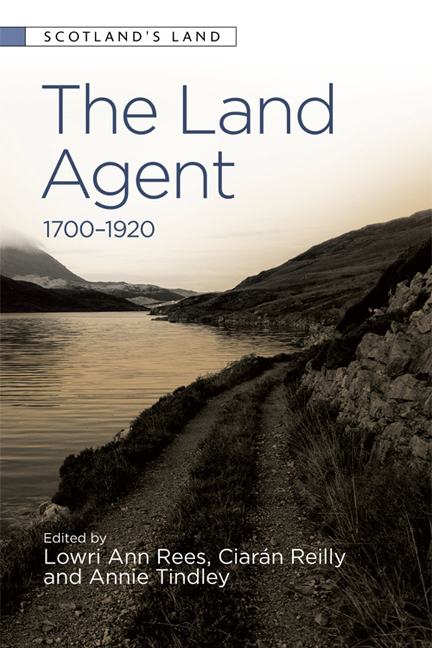Book contents
- Frontmatter
- Contents
- List of Figures
- Acknowledgements
- Notes on the Contributors
- Map of the British and Irish Isles
- Introduction
- Part I Power and its Constructions on Landed Estates
- Part II The Transnational Land Agent: Managing Land in the Four Nations and Beyond
- Part III Challenges and Catastrophe: The Land Agent under Fire
- Part IV Social Memory and the Land Agent
- Postscript
- 13 The Land Agent in Fiction
- 14 Poor Beasts
- Index
13 - The Land Agent in Fiction
from Postscript
Published online by Cambridge University Press: 11 August 2018
- Frontmatter
- Contents
- List of Figures
- Acknowledgements
- Notes on the Contributors
- Map of the British and Irish Isles
- Introduction
- Part I Power and its Constructions on Landed Estates
- Part II The Transnational Land Agent: Managing Land in the Four Nations and Beyond
- Part III Challenges and Catastrophe: The Land Agent under Fire
- Part IV Social Memory and the Land Agent
- Postscript
- 13 The Land Agent in Fiction
- 14 Poor Beasts
- Index
Summary
She didn't know much about horses and she didn't know anything about Patrick Sellar [land agent for the Sutherland estates]. Nor, for that matter, did he know much about her. As far as he was concerned, she was a disposable object … She didn't particularly like the look of him. His head wasn't Highland. It was too heavy and the face was too fat and red, and the eyes in the head were small and burning.
AS MANY OF THE chapters have touched upon individually, the legacy and memory of the land agent in Britain and Ireland made a strong impression on both contemporary and subsequent poetry, fiction, drama and folklore. This is unsurprising, given the wide range of powers, personalities and activities of land agents in all corners of the British and Irish isles, as well as the sheer scale of their dominion. Despite the urbanisation and industrialisation overtaking much of society in this period, large sections of it remained rural and agricultural, and the power of the landed and aristocratic classes, though subject to challenge, remained strong. Ireland – Belfast, Dublin and Cork aside – remained a fundamentally rural society and agricultural economy well into the twentieth century. As such, the requirements for, and scope of activities of, land agents remained significant and the raw materials for fictional presentations of such powerful figures prevalent.
A number of common stereotypes of the land agent can be traced in fiction and poetry from the eighteenth to the twentieth centuries, which had a powerful impact on their image in social, communal and popular memory. These shared stereotypes act as linking membrane between the four nations of the British and Irish isles, right into the present day, differences in traditions, languages and religion notwithstanding. The first of these was a will to rule, an overweening desire for the exercise of power, not simply on behalf of their employers, but for its own sake.
- Type
- Chapter
- Information
- The Land Agent , pp. 243 - 248Publisher: Edinburgh University PressPrint publication year: 2018



